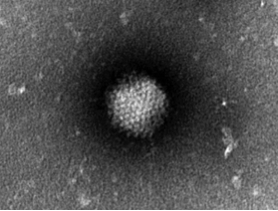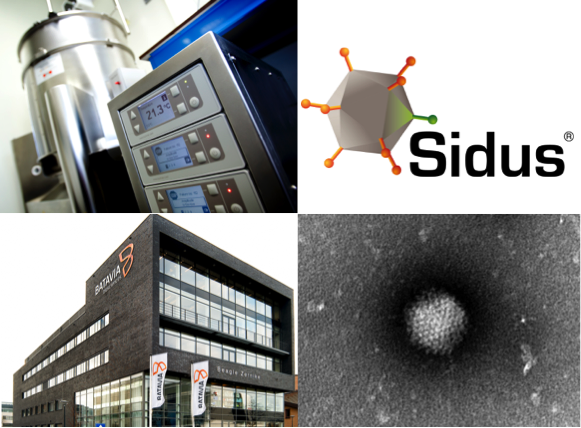
SIDUS® technology for viral vector manufacturing
Introduction
Viral vectors are highly valued in many therapeutic fields given the promise of low cost and safe manufacturing coupled with high product efficacy and an excellent safety profile. Engineered with the use of molecular biology tools, viral vectors from well-known natural viruses such as adeno-associated virus (AAV), lentivirus, adenovirus, or modified vaccinia ankara (MVA) have been explored for several decades. Scientists utilize these vectors predominantly to carry desired genetic material into cells or tissues with the purpose to correct genetic deficiencies or elicit host immune responses against either self-antigens (cancer) or foreign antigens (microbial, parasitic or viral pathogens).
Particular in the field of vaccines, several viral vectors have shown promise in combatting human or veterinary pathogens that demand a broad spectrum immune response from the host to gain control. Here, the ability to induce potent T-cell reactivity is unique for viral vectors as compared to, for example, protein-based, whole killed, split-, or subunit vaccines. Therefore, viral vectors are very promising for vaccines against HIV (AIDS), Plasmodium falciparum (malaria), Mycobacterium tuberculosis (TB), and diverse bio-threat targets like filoviruses (Marburg, Lassa, Ebola) to name but a few.
Viral vector-based products are new molecular entities and therefore the development of platform technologies, i.e. vector design, packaging systems, production procedures, purification methods, and release testing requirements are progressing while already assessing efficacy and safety aspects of viral vectors in clinical trials. It is therefore that companies developing viral vector products often seek support from external expert organizations to help develop a robust process and deliver clinical grade product while focusing internal resources on platform improvement technologies.
Advantages of Outsourcing Clinical Manufacturing
While most companies have researched and developed a vector that is best suited for their therapeutic application, many don’t have the experience, facilities or internal resources for process development and GMP manufacturing. In these cases, outsourcing the process development and the clinical material manufacturing is a good option. At Batavia Biosciences, the viral vector technology is deeply imbedded in our proprietary SIDUS® technology platform. SIDUS® technology, composed of in-depth knowhow encompassing research and development as well as GMP manufacturing, offers a platform to accelerate biopharmaceutical development based on novel or existing viral vectors. Batavia Biosciences’ optimized processes, deliver phase I and phase II clinical material, and provide a scalable process that can be transferred for phase III material production and eventual commercialization. A close working relationship, open communication, trust and confidence in your contract manufacturing is key to successful outsourcing.
SIDUS® technology
The SIDUS® technology covers the entire range of activities including generation of recombinant virus from DNA or RNA, generation of pre-master virus seeds and master virus seeds, process development up to 100 L scale (from a production as well as a purification perspective), development of assays for in process control, potency and quality release of research and GMP manufactured vector drug substance and drug product. The SIDUS® technology, anchored in protocols, work instructions, pharmaceutical grade raw materials and selected equipment, allows Batavia Biosciences to perform the viral vector manufacturing process at 100-1000 mL scale once or twice and then immediately scale-up to final production volume for a phase I product, i.e., usually 10-100 L volume. This linear scalability of production allows cost effective delivery of drug product in record time. One of the critical components in for instance AAV or lentiviral vector manufacturing is the high cell density transfection procedure on HEK293 cells deployed by Batavia Biosciences. Here, a fully closed system, higher than 90% cell transfection efficiency, more than 2 x 1011 cells transfected in less than 30 minutes, and high cell recovery all determine the success of high quality vector prep manufacturing. Naturally, the availability of qualified assays to determine yield, integrity, purity, identity, potency, stability and residuals are crucial to move effectively forward through the project and anchor important go/ no-go decisions.
Batavia Biosciences has a GMP quality system in place including a Qualified Person (QP), QA system and QC department that will release your clinical product on in-house performed release tests.
About the Author
Menzo Havenga is a leading viral vector scientist. Dr. Havenga has published more than 90 peer-reviewed, international  scientific publications on viral vectors, in journals like Nature, Cell, Cancer Research, Journal of Virology and Journal of Immunology. Furthermore, he is inventor on more than 35 awarded patents in the field of life sciences. In 2015 Havenga was awarded a medal as top entrepreneur in the European Business Awards, and he has been awarded the prestigious title “CEO of the year” in 2016 by Acquisition International. Dr. Menzo Havenga is CEO at Batavia Biosciences.
scientific publications on viral vectors, in journals like Nature, Cell, Cancer Research, Journal of Virology and Journal of Immunology. Furthermore, he is inventor on more than 35 awarded patents in the field of life sciences. In 2015 Havenga was awarded a medal as top entrepreneur in the European Business Awards, and he has been awarded the prestigious title “CEO of the year” in 2016 by Acquisition International. Dr. Menzo Havenga is CEO at Batavia Biosciences.
Batavia Biosciences is a full-fledged contract biopharmaceutical development organization. The company employs about 85 FTE working in its laboratory infrastructure in both Europe (Leiden, NL) and USA (Woburn, MA). The company actively develops novel technologies with the aim to make biopharmaceutical manufacturing more cost and time efficient and more robust from molecular biology to clinical manufacturing and from cell line development to product characterization. Batavia Biosciences has a track record for all major classes of biopharmaceuticals, like recombinant proteins, antibodies, vaccines and Gene Therapy vectors.